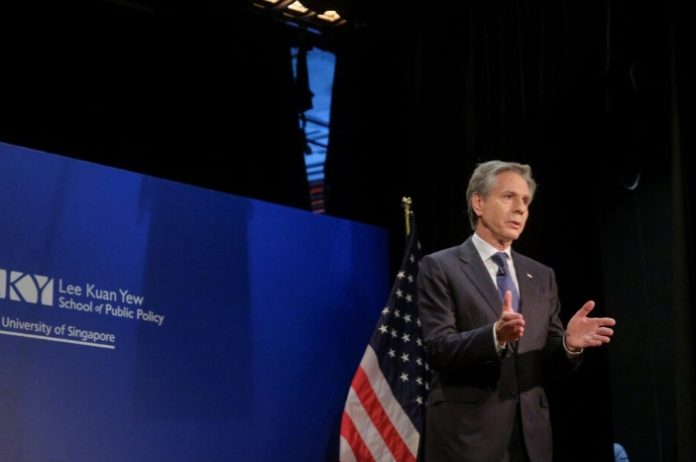The United States has suspended $95 million in aid to Georgia following the recent adoption of a law on foreign agents that sparked mass protests inside the country. US Secretary of State Antony Blinken announced the suspension of aid, citing “anti-democratic” actions by the Georgian government.
Blinken said that despite the suspension of aid directly benefiting the Georgian government, the US will continue to support programmes that promote democracy, rule of law, independent media and economic development in Georgia. Emphasising that the US has provided more than $6.2 billion in aid to Georgia since its independence from the Soviet Union, he said:
“We will remain committed to the Georgian people and their Euro-Atlantic aspirations.”
A controversial law passed by the Georgian parliament in May obliges media and non-governmental organisations that receive more than 20% of their funding from abroad to register as “pursuing the interests of a foreign power.”
On May 28, the parliament managed to override President Salome Zourabichvili’s veto of the controversial law by a majority vote, and it officially came into effect on June 3. After that, the US imposed visa restrictions against dozens of Georgian citizens, including members of parliament and their families. Georgian MPs reacted to this, calling the US decision unacceptable.
At the end of June, it became known that less than a month after mass protests over the “law on foreign agents,” the ruling Georgian Dream party passed through the first reading of a bill with norms against “LGBT propaganda.” In early July, Georgia’s accession to the European Union had been suspended. According to the EU ambassador in Tbilisi, “the intentions of the current Georgian government are unclear” and therefore Georgia’s EU integration process is on hold.
Senator Ben Cardin, chairman of the US Senate Foreign Relations Committee, issued a statement in support of the aid suspension. He called the Biden-Harris administration’s decision a necessary response to Georgia’s retreat from democratic principles, particularly the adoption of the law on foreign agents and the dispersal of peaceful demonstrators. Cardin said the suspension of aid demonstrates the US commitment to stand with the Georgian people and support their democratic aspirations.
Earlier, leaders of the Helsinki Commission called on the Biden administration to impose sanctions against billionaire Bidzina Ivanishvili, former prime minister and founder of the Georgian Dream party. The letter, signed by several US representatives, calls for immediate and decisive action against the increasingly authoritarian government in Tbilisi. It highlights the role of fraudulent call centres in supporting “corrupt activities” and influencing the work of Georgian Dream.
The letter suggested that imposing individual financial sanctions and disrupting these networks would complement the law on Mobilising and Empowering Georgia for Accountability, Sustainability and Independence (MEGOBARI). US representatives argued that such measures would help protect the Georgian population and maintain the democratic integrity of the country.
Foreign Agents Law in US and EU Legislation
However, the US has had its own law on foreign agents since the first half of the 20th century. The 32nd President of the US, Franklin Roosevelt, signed the American Foreign Agents Act into law in the summer of 1938. The law required foreign agents representing the interests of foreign powers in a “political or quasi-political capacity” to disclose their relationship with the government of another country.
EU countries also have similar laws. On March 27, 2024, the French National Assembly approved a bill on the prevention of foreign interference. According to the bill, France should have its own register of foreign agents.
